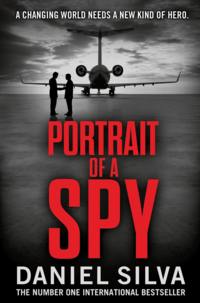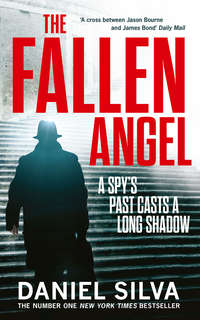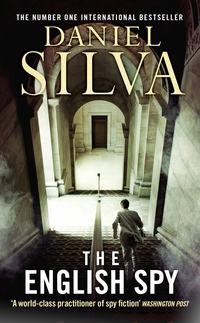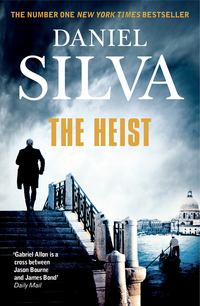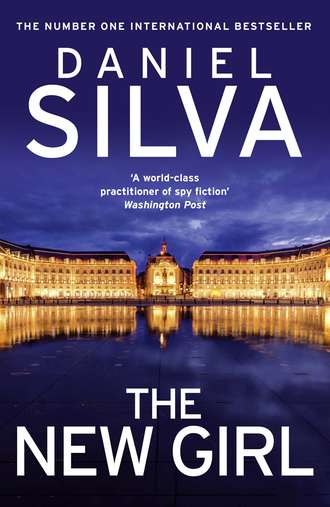
Полная версия
The New Girl
For the better part of the last year, the Office had been watching the warehouse with human surveillance artists and miniature cameras. They had learned that the first shift of security guards arrived each morning at seven. They had also learned that for several hours each night, beginning around ten o’clock, the warehouse was protected only by the locks on its doors and the surrounding fence. Gabriel and Yaakov Rossman, the chief of special operations, had agreed that the team would remain inside no later than five a.m. The source had told them which safes to open and which to ignore. Owing to the method of entry—torches that burned at 3,600 degrees Fahrenheit—there was no way to conceal the operation. Therefore, Gabriel had ordered the team not to copy the relevant material but to steal it outright. Copies were easily denied. Originals were harder to explain. Furthermore, the brazenness of seizing Iran’s nuclear archives and smuggling them out of the country would humiliate the regime in front of its restive populace. Gabriel loved nothing more than embarrassing the Iranians.
But stealing the original documents increased the risk of the operation exponentially. Encrypted copies could be carried out of the country on a couple of high-capacity flash drives. The originals would be much harder to move and conceal. An Iranian asset of the Office had purchased a Volvo cargo truck. If the security guards at the warehouse kept to their normal schedule, the team would have a two-hour head start. Their route would take them from the fringes of Tehran, over the Alborz Mountains, and down to the shore of the Caspian. The exfiltration point was a beach near the town of Babolsar. The backup was a few miles to the east at Khazar Abad. All sixteen members of the team planned to leave together. Most were Farsi-speaking Iranian Jews who could easily pass as native Persians. The team leader, however, was Mikhail Abramov, a Moscow-born officer who had carried out numerous dangerous assignments for the Office, including the assassination of a top Iranian nuclear scientist in the center of Tehran. Mikhail was the operation’s sore thumb. In Gabriel’s experience, every operation needed at least one.
Once upon a time, Gabriel Allon would have undoubtedly been a part of such a team. Born in the Valley of Jezreel, the fertile plot of land that had produced many of Israel’s finest warriors and spies, he was studying painting at the Bezalel Academy of Art and Design in Jerusalem in September 1972 when a man named Ari Shamron came to see him. A few days earlier a terrorist group called Black September, a front for the Palestine Liberation Organization, had murdered eleven Israeli athletes and coaches at the Olympic Games in Munich. Prime Minister Golda Meir had ordered Shamron and the Office to “send forth the boys” to hunt down and assassinate the men responsible. Shamron wanted Gabriel, a fluent speaker of Berlin-accented German who could pose convincingly as an artist, to be his instrument of vengeance. Gabriel, with the defiance of youth, had told Shamron to find someone else. And Shamron, not for the last time, had bent Gabriel to his will.
The operation was code-named Wrath of God. For three years Gabriel and a small team of operatives stalked their prey across Western Europe and the Middle East, killing at night and in broad daylight, living in fear that at any moment they might be arrested by local authorities and charged as murderers. In all, twelve members of Black September died at their hands. Gabriel personally killed six of the terrorists with a .22-caliber Beretta pistol. Whenever possible, he shot his victims eleven times, one bullet for each murdered Jew. When finally he returned to Israel, his temples were gray from stress and exhaustion. Shamron called them smudges of ash on the prince of fire.
It had been Gabriel’s intention to resume his career as an artist, but each time he stood before a canvas, he saw only the faces of the men he had killed. And so he traveled to Venice as an expatriate Italian named Mario Delvecchio to study the craft of restoration. When his apprenticeship was complete, he returned to the Office, and to the waiting arms of Ari Shamron. Posing as a gifted if taciturn European-based art restorer, he eliminated some of Israel’s most dangerous enemies and carried off some of the most celebrated operations in Office history. Tonight’s would rank among his finest. But only if it succeeded. And if it failed? Sixteen highly trained Office agents would be arrested, tortured, and in all likelihood publicly executed. Gabriel would have no choice but to resign, an ignoble end to a career against which all others would be measured. It was even possible he might take down the prime minister with him.
For now, there was nothing Gabriel could do but wait and worry himself half to death. The team had entered the Islamic Republic the previous evening and made their way to a network of safe houses in Tehran. At 10:15 p.m. Tehran time, Gabriel received a message from the Operations Desk at King Saul Boulevard over the secure link, informing him that the last shift of security guards had left the warehouse. Gabriel ordered the team to enter, and at 10:31 p.m. they were in. That left them six hours and twenty-nine minutes to torch their way into the targeted safes and seize the nuclear archives. It was a minute less than Gabriel had hoped they would have, a small setback. In his experience, every second counted.
Gabriel was blessed with a natural patience, a trait that had served him well as both a restorer and an intelligence operative. But that night on the shore of the Caspian Sea, all forbearance abandoned him. He paced the half-furnished rooms of the villa, he muttered to himself, he ranted nonsense at his two long-suffering bodyguards. Mainly, he thought about all the reasons why sixteen of his finest officers would never make it out of Iran alive. He was certain of only one thing: if confronted by Iranian forces, the team would not surrender quietly. Gabriel had granted Mikhail, a former Sayeret Matkal commando, wide latitude to fight his way out of the country if necessary. If the Iranians intervened, a good many of them would die.
Finally, at 4:45 a.m. Tehran time, a message flashed over the secure link. The team had left the warehouse with the files and computer disks and was making their escape. The next message arrived at 5:39 a.m., as the team was headed into the Alborz Mountains. It stated that one of the security guards had arrived at the warehouse early. Thirty minutes later Gabriel learned that the NAJA, Iran’s national police force, had ordered a nationwide alert and was blocking roads around the country.
He slipped from the villa and in the half-light of dawn walked down to the shore of the lake. In the low hills at his back, the muezzin summoned the faithful. Prayer is better than sleep … At that moment in time, Gabriel couldn’t agree more.
6
TEL AVIV
WHEN SARAH BANCROFT RECEIVED NO reply to her phone call or subsequent text messages, she concluded she had no choice but to leave New York and fly to Israel. Khalid saw to her travel arrangements. Consequently, she made the journey privately and in considerable luxury, with the only inconvenience being a brief refueling stop in Ireland. Forbidden to use any of her old CIA identities, she cleared passport control at Ben Gurion Airport under her real name—a name that was well known to the intelligence and security services of the State of Israel—and rode in a chauffeured car to the Tel Aviv Hilton. Khalid had booked the largest suite in the hotel.
Upstairs, Sarah dispatched another text message to Gabriel’s private mobile, this one stating that she had come to Tel Aviv on her own initiative to discuss a matter of some urgency. The message, like all the others, went unanswered. It was not like Gabriel to ignore her. It was possible he had changed his number or had been forced to relinquish his private device. It was also possible he was simply too busy to see her. He was, after all, the director-general of Israel’s secret intelligence service, which meant he was one of the most powerful and influential figures in the country.
Sarah, however, would always think of Gabriel Allon as the cold, unapproachable man she encountered for the first time in a graceful redbrick town house on N Street in Georgetown. He had pried into every padlocked room of her past before asking whether she would be willing to go to work for Jihad Incorporated, which was how he referred to Zizi al-Bakari, the financier and facilitator of Islamic terror. Sarah had been fortunate to survive the operation that followed and spent several months recuperating at a CIA safe house in the horse country of Northern Virginia. But when Gabriel needed one final piece of an operation against a Russian oligarch named Ivan Kharkov, Sarah leapt at the chance to work with him again.
At some point she also managed to fall quite in love with him. And when she discovered he was unavailable, she began an ill-advised affair with an Office field operative named Mikhail Abramov. The relationship was doomed from the beginning; they were both technically forbidden to date officers from other services. Even Sarah, when she analyzed the situation honestly, admitted the affair was a transparent attempt to punish Gabriel for rejecting her. Predictably, it ended badly. Sarah had seen Mikhail only once since then, at a party celebrating Gabriel’s promotion to director-general. He had had a pretty French Jewish doctor on his arm. Sarah had coolly offered him her hand rather than her cheek.
When another hour passed with no response from Gabriel, Sarah went downstairs to walk along the Promenade. The weather was fine and soft, and a few fat white clouds were scudding like dirigibles across the blue Levantine sky. She walked north, past trendy beachfront cafés, among the spandexed and the suntanned. With her blond hair and Anglo-Saxon features, she looked only mildly out of place. The vibe was secular and Southern Californian, Santa Monica on the shores of the Mediterranean. It was hard to imagine that the chaos and civil war of Syria lay just over the border. Or that less than ten miles to the east, atop a bony spine of hills, were some of the most restive Palestinian villages of the West Bank. Or that the Gaza Strip, a ribbon of human misery and resentment, was less than an hour’s drive to the south. In hip Tel Aviv, thought Sarah, Israelis might be forgiven for believing the dream of Zionism had been achieved without cost.
She turned inland and wandered the streets, seemingly without purpose or destination. In truth, she was engaging in a surveillance-detection run using techniques taught to her by both the Agency and the Office. On Dizengoff Street, while leaving a pharmacy with a bottle of shampoo she did not need, she concluded she was being followed. There was nothing specific, no confirmed sighting, just a nagging sense that someone was watching her.
She walked through the cool shadows of the chinaberry trees. The pavements were crowded with midmorning shoppers. Dizengoff Street … The name was familiar. Something awful had happened on Dizengoff Street, Sarah was certain of it. And then she remembered. Dizengoff Street had been the target of a Hamas suicide bombing in October 1994 that killed twenty-two people.
Sarah knew someone who had been wounded, an Office terrorism analyst named Dina Sarid. She had once described the attack to Sarah. The bomb had contained more than forty pounds of military-grade TNT and nails soaked in rat poison. It exploded at nine a.m., aboard the Number 5 bus. The force of the blast hurled human limbs into the nearby cafés. For a long time afterward, blood dripped from the leaves of the chinaberry trees.
It rained blood that morning on Dizengoff Street, Sarah …
But where exactly had it happened? The bus had just picked up several passengers in Dizengoff Square and was heading north. Sarah checked her current position on her iPhone. Then she crossed to the opposite side of the street and continued south, until she came upon a small gray memorial at the base of a chinaberry tree. The tree was much shorter than the others on the street, and younger.
Sarah approached the memorial and scrutinized the names of the victims. They were written in Hebrew.
“Can you read it?”
Startled, Sarah turned and saw a man standing on the pavement in a pool of dappled light. He was tall and long-limbed, with fair hair and pale, bloodless skin. Dark glasses concealed his eyes.
“No,” answered Sarah at length. “I can’t.”
“You don’t speak Hebrew?” The man’s English contained the unmistakable trace of a Russian accent.
“I studied it briefly, but I stopped.”
“Why?”
“It’s a long story.”
The man crouched before the memorial. “Here are the names you’re looking for. Sarid, Sarid, Sarid.” He looked up at Sarah. “Dina’s mother and two of her sisters.”
He stood and raised his dark glasses, revealing his eyes. They were blue-gray and translucent—like glacial ice, thought Sarah. She had always loved Mikhail’s eyes.
“How long have you been following me?”
“Since you left your hotel.”
“Why?”
“To see if anyone else was following you.”
“Countersurveillance.”
“We have a different word for it.”
“Yes,” said Sarah. “I remember.”
At once, a black SUV drew to the curb. A young man in a khaki vest climbed out of the passenger seat and opened the rear door.
“Get in,” said Mikhail.
“Where are we going?”
Mikhail said nothing. Sarah climbed into the backseat and watched a Number 5 bus slide past her blacked-out window. It didn’t matter where they were going, she thought. It was going to be a very long ride.
7
TEL AVIV–NETANYA
COULDN’T GABRIEL HAVE FOUND SOMEONE else to bring me in?”
“I volunteered.”
“Why?”
“I wanted to avoid another awkward scene.”
Sarah gazed out her window. They were driving through the heart of Israel’s version of Silicon Valley. Shiny new office buildings lined both sides of the flawless highway. In the space of a few years, Israel had traded its socialist past for a dynamic economy driven by the technology sector. Much of that innovation went directly to the military and the security services, giving Israel a decided edge over its Middle East adversaries. Even Sarah’s former colleagues at the CIA’s Counterterrorism Center used to marvel at the high-tech prowess of the Office and Intelligence Unit 8200, Israel’s electronic eavesdropping and cyberwarfare service.
“So the nasty rumor is true, after all.”
“What nasty rumor is that?”
“The one about you and that pretty French woman getting married. Forgive me, but her name slips my mind.”
“Natalie.”
“Nice,” said Sarah.
“She is.”
“Still practicing medicine?”
“Not exactly.”
“What does she do now?”
With his silence, Mikhail confirmed Sarah’s suspicion that the pretty French doctor was employed by the Office. Sarah’s memory of Natalie, while clouded by jealousy, was of a darkly exotic-looking woman who could easily pass for an Arab.
“I suppose there are fewer complications that way. It’s much easier when husband and wife are employed by the same service.”
“That isn’t the only reason we—”
“Let’s not do this, Mikhail. I haven’t thought about it in a long time.”
“How long?”
“At least a week.”
They slid beneath Highway 5, the secure road linking the Coastal Plain with Ariel, the Jewish settlement block deep inside the West Bank. The junction was known as the Glilot Interchange. Beyond it was a shopping center with a multiplex movie theater. There was also another new office complex, partially concealed by thick trees. Sarah supposed it was the headquarters of yet another Israeli tech titan.
She looked at Mikhail’s left hand. “Did you misplace it already?”
“What’s that?”
“Your wedding band.”
Mikhail seemed surprised by its absence. “I took it off before I went into the field. We got back late last night.”
“Where were you?”
Mikhail looked at her blankly.
“Come now, darling. We have a past, you and I.”
“The past is the past, Sarah. You’re an outsider now. Besides, you’ll know soon enough.”
“At least tell me where it was.”
“You wouldn’t believe me.”
“Wherever it was, it must have been awful. You look like hell.”
“The ending was messy.”
“Anyone get hurt?”
“Only the bad guys.”
“How many?”
“Lots.”
“But the operation was a success?”
“One for the books,” said Mikhail.
The high-tech office blocks had given way to the affluent northern Tel Aviv suburb of Herzliya. Mikhail was reading something on his mobile phone. He looked bored, his default expression.
“Do give her my best,” said Sarah archly.
Mikhail returned the phone to his jacket pocket.
“Tell me something, Mikhail. Why did you really volunteer to bring me in?”
“I wanted a word with you in private.”
“Why?”
“So I could apologize for the way it turned out between us.”
“Turned out?”
“For the way I treated you in the end. I behaved badly. If you could find it in your heart to—”
“Was Gabriel the one who told you to end it?”
Mikhail seemed genuinely surprised. “Wherever did you get an idea like that?”
“I always wondered, that’s all.”
“Gabriel told me to go to America and spend the rest of my life with you.”
“Why didn’t you take his advice?”
“Because this is my home.” Mikhail gazed at the patchwork quilt of farmland beyond his window. “Israel and the Office. There was no way I could live in America, even if you were there.”
“I could have come here.”
“It’s not such an easy life.”
“Better than the alternative.” She immediately regretted her words. “But the past is the past—isn’t that what you said?”
He nodded slowly.
“Did you ever have any second thoughts?”
“About leaving you?”
“Yes, you idiot.”
“Of course.”
“And are you happy now?”
“Very.”
She was surprised at how badly his answer wounded her.
“Perhaps we should change the subject,” suggested Mikhail.
“Yes, let’s. What shall we talk about?”
“The reason you’re here.”
“Sorry, but I can’t discuss it with anyone but Gabriel. Besides,” said Sarah playfully, “I have a feeling you’ll know soon enough.”
They had reached the southern fringes of Netanya. The tall white apartment houses lining the beach reminded Sarah of Cannes. Mikhail spoke a few words in Hebrew to the driver. A moment later they stopped at the edge of a broad esplanade.
Mikhail pointed toward a dilapidated hotel. “That’s where the Passover Massacre happened back in 2002. Thirty dead, a hundred and forty wounded.”
“Is there any place in this country that hasn’t been bombed?”
“I told you, life isn’t so easy here.” Mikhail nodded toward the esplanade. “Take a walk. We’ll do the rest.”
Sarah climbed out of the car and started across the square. The past is the past … For a moment, she almost believed it was true.
8
NETANYA
AT THE CENTER OF THE esplanade was a blue reflecting pool, around which several young Orthodox boys, payess flying, played a noisy game of tag. They were speaking not in Hebrew but in French. So were their wigged mothers and the two black-shirted hipsters who eyed Sarah approvingly from a table at a brasserie called Chez Claude. Indeed, were it not for the worn-out khaki-colored buildings and the blinding Middle Eastern sunlight, Sarah might have imagined she was crossing a square in the twentieth arrondissement of Paris.
Suddenly, she realized someone was calling her name, with the emphasis on the second syllable rather than the first. Turning, she spotted a petite dark-haired woman waving to her from across the square. The woman approached with a slight limp.
Sarid, Sarid, Sarid …
Dina kissed Sarah on both cheeks. “Welcome to the Israeli Riviera.”
“Is everyone here French?”
“Not everyone, but more are coming every day.” Dina pointed toward the far end of the square. “There’s a little place called La Brioche right over there. I recommend the pain au chocolat. They’re the best in Israel. Order enough for two.”
Sarah walked to the café. She made a few moments of small talk in fluent French with the woman behind the counter before ordering an assortment of pastries and two coffees, a café crème and an espresso.
“Sit anywhere you like. Someone will bring your order.”
Sarah went outside. Several tables stood along the edge of the square. At one sat Mikhail. He caught Sarah’s eye and nodded toward the man of late middle age sitting alone. He wore a dark gray suit and white dress shirt. His face was long and narrow at the chin, with wide cheekbones and a slender nose that looked as though it had been carved from wood. His dark hair was cropped short and shot with gray at the temples. His eyes were an unnatural shade of green.
Rising, he extended his hand, formally, as though meeting Sarah for the first time. She held it a moment too long. “I’m surprised to see you in a place like this.”
“I go out in public all the time. Besides,” he added with a glance toward Mikhail, “I have him.”
“The man who broke my heart.” She sat down. “Is he the only one?”
Gabriel shook his head.
“How many?”
His green eyes searched the square. “Eight, I believe.”
“A small battalion. Who have you managed to offend this time?”
“I imagine the Iranians are a bit miffed at me. So is my old friend in the Kremlin.”
“I read something in the newspapers about you and the Russians a couple of months ago.”
“Did you?”
“Your name came up during that spy scandal in Washington. They said you were aboard the private plane that took Rebecca Manning from Dulles Airport to London.”
Rebecca Manning was the former MI6 Head of Station in Washington. She now reported for work each morning at Moscow Center, headquarters of the SVR, Russia’s Foreign Intelligence Service.
“There was also a suggestion,” Sarah went on, “that you were the one who killed those three Russian agents they found on the C&O Canal in Maryland.”
A waiter appeared with their order. He placed the espresso in front of Gabriel with inordinate care.
“What’s it like to be the most famous man in Israel?” asked Sarah.
“It has its drawbacks.”
“Surely, it isn’t all bad. Who knows? If you play your cards right, you might even be prime minister one day.” She tugged at the sleeve of his suit jacket. “I must say, you look the part. But I think I like the old Gabriel Allon better.”
“Which Gabriel Allon was that?”
“The one who wore blue jeans and a leather jacket.”
“We all have to change.”
“I know. But sometimes I wish I could turn back the clock.”
“Where would you go?”
She thought about it for a moment. “The night we had dinner together in that little place in Copenhagen. We sat outside in the freezing cold. I told you a deep, dark secret I should have kept to myself.”
“I don’t remember it.”
Sarah plucked a pain au chocolat from the basket. “Aren’t you going to have one?”
Gabriel held up a hand.
“Maybe you haven’t changed, after all. In all the years I’ve known you, I don’t think I’ve ever seen you eat a bite of food during the daytime.”
“I make up for it after the sun goes down.”



